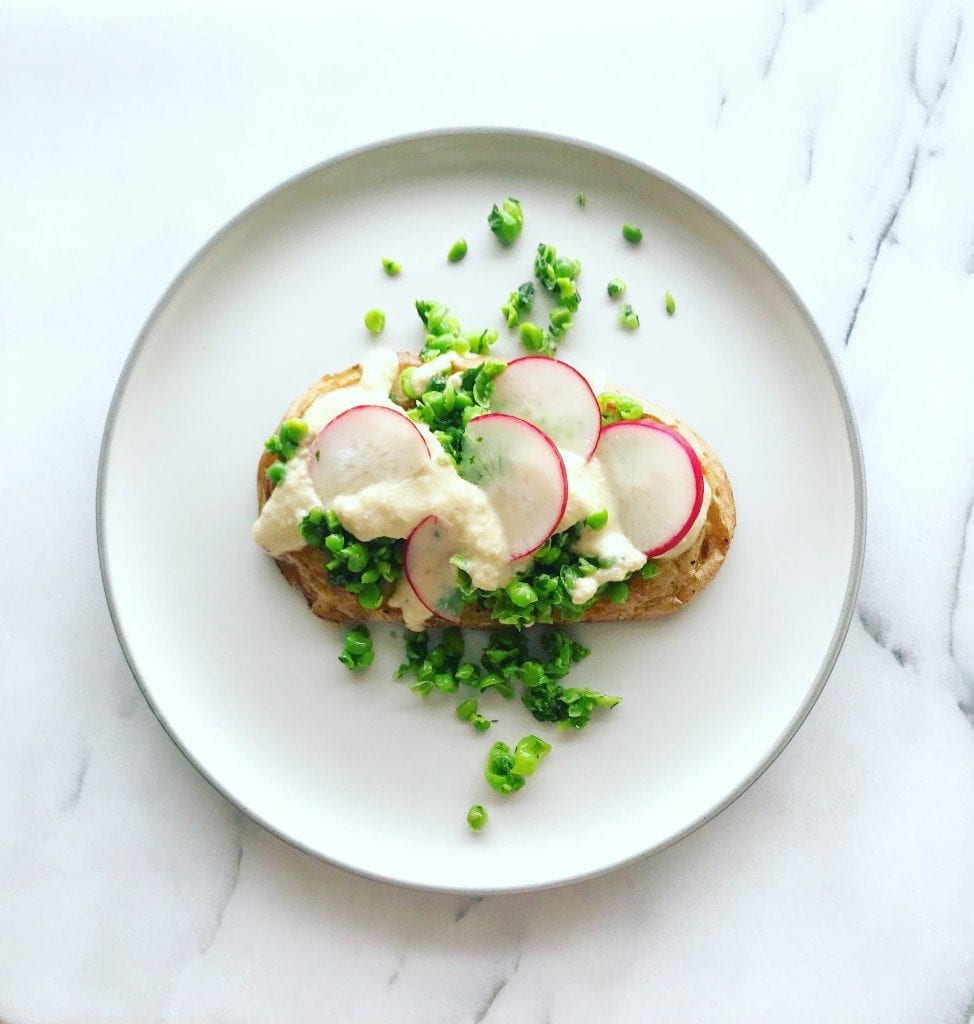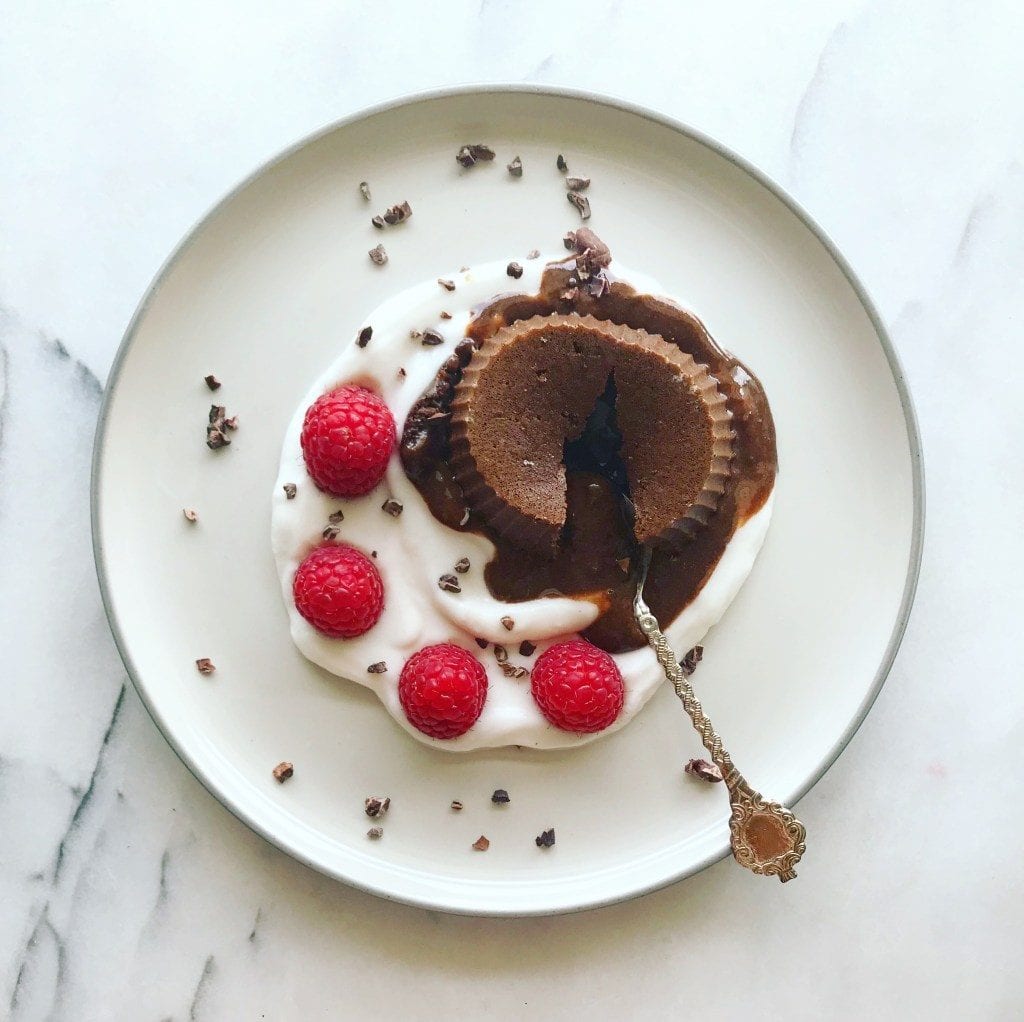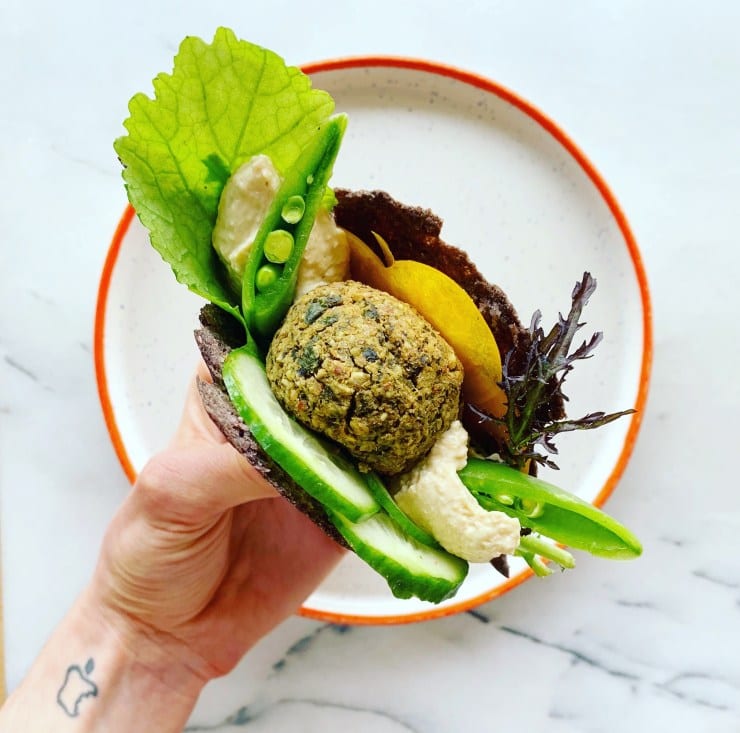Phoebe Liebling is a Nutritional Therapist who shares healthy recipes, unbiased nutritional guidance, runs her own Harley Street Clinical Practice and is the brain behind Natural Nourishment. In this post we chat with Phoebe and discover how she came to discover functional medicine, the most common nutritional issues faced by working women today and a few simple ways you can develop a balanced weekly diet…

Natural Nourishment
Tell us a bit about Natural Nourishment…
I think the central theme behind Natural Nourishment, and my approach to food and nutrition generally in fact, can be summed up by the catchphrase I coined right at the beginning “Making Every Mouthful Matter”.
“Making Every Mouthful Matter”
– Phoebe Liebling
I have always been a food lover, my family are big ones for communing around a table and my mum is the woman who can pull together a delectable feast for 20 people with seemingly little effort. Suffice to say as soon as I was capable of contributing to the kitchen activities at home I was straight in there, no questions asked.

In my early 20s I had to make some pretty drastic changes to my own diet following a period of ill health and my personal experimentation with new ingredients and cooking methods was the beginning of my recipe writing days. I then became more aware of the nutrition side of things through my post graduate training and the 2 arms naturally melded together. I now use my recipes as a form of educational tool to show how we can all easily eat beautifully delicious things whilst making sure they support our health at the same time.
Natural Nourishment: Becoming A Nutritional Therapist
What inspired you to become a Nutritional Therapist and how did you grow your practice?
It is actually a pretty classic tale. I caught a virus aged 19 during my first week at university, it attacked my digestive system and I was progressively fed stronger and stronger medication over the next couple of years to try and manage my symptoms. Unfortunately those symptoms got worse, I became more unwell, I saw more and more specialists and in the end their great explanation was pretty much just “This is your lot, learn to cope”. I wasn’t quite prepared to leave it at that however, and neither was my mother, who had had to watch as I became increasingly thin, wracked with anxiety and in significant amounts of pain.
‘I became more unwell, I saw more and more specialists and in the end their great explanation was pretty much just “This is your lot, learn to cope’
– Phoebe Liebling, on starting her own practice
We scrapped that approach, I came off the medication (not a pleasant experience) and I began seeing an acupuncturist to try and help with my anxiety and sleep pattern which by this point was pretty non-existent. She introduced me to the idea that healthcare need not be isolationist. If you were to go down the standard medical route and see a gastroenterologist they’ll look at your digestive system, but you’d have to see an endocrinologist as well if your hormone levels have gone off piste too, and they would then send you to a rheumatologist for the musculoskeletal pain you’ve also got (I did this round trip numerous times).
Heal The Root Cause
Functional Medicine on the other hand considers someone as a whole entity and works on the basis that nothing in the body can occur without having an impact elsewhere, and also that superficial symptoms such as chronic pain are actually just a manifestation of an inflammatory response gone awry.
‘Yes we need to calm the pain in the short term but fundamentally we need to get to the root of that inflammation, extinguish it, and then the pain is gone long term not just lessened and made ‘manageable’.’
– Phoebe Liebling, on inflammation
Finding Functional Medicine
This was revolutionary to me and once I had finished my undergrad and returned to London I was 100% set on learning more so I researched and landed on Nutritional Therapy, a form of Functional Medicine that uses food (my other love) as its primary therapeutic tool.
When I started practising I worked alongside an oncology Dietician in a collaborative practice but a couple of years in I decided to strike out on my own. In terms of expanding my clinic I have pretty much just slogged away for the last few years; I’ve introduced myself to everyone I can, I’ve created a social media presence, I’ve gone everywhere and anywhere people have asked me to go, but underlying all of that it’s the organic word of mouth recommendations that will always win. Happy clients, other practitioners, friends of friends, I know if I were to go out looking for someone like myself I would always hold a personal opinion in higher regard than Google so that’s where I concentrate my energy.
Managing A Nutritional Therapy Business
What do you enjoy most about running your own practice and what are some of the challenges you face?
I love the flexibility, I am physically incapable of sitting behind a desk for endless hours a day, it makes me miserable! I am also an early bird so I like to hit the ground running first thing in the morning, get through my paperwork and plans from the previous day before most people are awake and then head off to the gym or to do something physically active before diving into my clinical day. And I can make that my schedule rather than having to be in a certain place at a certain time, something I know a couple of my friends are slightly envious of.
The above also ties in with the fact that I am privileged enough to have a number of sides to my career. In addition to seeing clients 1:1 for consultations I also act as a Nutritional Consultant for a number of brands so I can factor whatever projects I might also be involved in into my calendar. This could be anything from travelling to a factory or working on new product development, to delivering educational webinars and presentations, or writing articles for their websites. Each day/week/month is a new, different and exciting mountain to climb.
‘Above all I love the people I get to meet, and I love that I get to help them.’
-Phoebe Liebling on running a Nutritional Therapy Business
The challenge to all of this however is that you are your business, it is really tough to turn off, it can become all encompassing and bleed into all of your free time, and of course it isn’t sure. Projects come and go, 1 month can be absolutely rammed with clients and the next a little lighter, you have to become very good at being your own balance because otherwise that fluctuation can be rather destabilising.
As a woman with her own business, do you have any pearls of wisdom to share with women who have similar ambitions (in any field)?
Be confident in your knowledge/product/brand and don’t underestimate your worth.
When I started out I gave away a lot of my time for free but whenever I did I considered the long term implications to my practice. I gave talks, I went and met specialists, I wrote letters, I offered to cook for people, I did as much as I could to get in front of people so they could see me, how I was different and how what I was offering would be of benefit to them.
But I did this for too long. I reached a critical point where I was working like a dog but for so little reward I was struggling to live the life I was extolling the virtues of. I then had to make a terrifying choice of dropping half of the things I was doing and basically standing up and saying “Pay me or I’m going to leave”. (Luckily for me a lot of them wanted to pay me because I’d more than proved to them that I was worth it!)
Gaining exposure and experience is hugely important, but having a life and being a functioning human being is equally if not more so. Don’t fall into the same trap I did basically!
Oh and another thing – learn to take good advice! It’s very difficult when something is your baby but often an outside perspective telling you the things you don’t want to hear is the most helpful way to improve.

What are the common nutritional issues experienced by women you help?
The great thing about women generally is we want to do everything, but this can also be our downfall.
If I were to search for an average collection of problems so to speak they would probably be high stress/anxiety levels and hormonal imbalance. This would then present as tiredness or lack of stamina, poor sleep patterns, PMS/painful periods and digestive dysfunction.
Now they may sound like disparate things to you but to me they make perfect sense – high stress/anxiety depresses digestive function, we then absorb nutrients less well and less efficiently digested food passes into our intestines. Cue low energy, bloating and a wasting of vital elements like magnesium, which also just so happens to crucial for our hormone regulation and muscle relaxation, oh and there we have the PMS bits and period pains coming into play.
That is literally the most basic example and misses a number of elements but hopefully gives a little insight into the web of Functional Medicine and how it works!.
Do you have any nutritional advice we could share with our readers; especially working women?
Make sure to start the day on a solid breakfast, whatever you do running out of
the house on a coffee and a prayer is not going to set your body up for a great
day ahead.
I advocate a more protein rich start to the day as this sets our blood sugar and energy levels off on a nice even pootle rather than a shooting star esque peak and trough scenario. Great examples would be eggs or fish on a good piece of dark rye bread, with a nice handful of leafy greens (rocket, spinach, watercress) for good measure. If time is tight prepping something like a frittata to portion up and take with you instead works really nicely. Other options like yoghurt with nuts, seeds and berries, avocado or hummus on baked slices of sweet potato, or even leftovers from the night before are all brilliant too.
And make sure to be having plenty of water, steadily throughout the day. Our body needs a huge quantity for many, many things so if nothing else ensuring you are adequately hydrated will be a leap in a very positive direction.
Create A Balanced Weekly Diet
Do you have any tips for creating more balance in our weekly diets?
‘Add colour wherever you can, and go easy on sweets and stimulants.’
– Phoebe Liebling, on creating a balanced diet
Many of my clients come back to me with little mantras that have stuck with them and my classic “When you would usually go to the cupboard for a snack go to your salad drawer instead” tends to be a popular one.
If you would usually go for a premade energy bar why not have an apple and some nuts instead? Or a sliced pepper with hummus? Or maybe you could add a large handful of something green to your lunch or dinner?
But I would always look at what you can put in before you start chastising yourself about what you should remove.
Natural Nourishment: Healthy Recipes
Finally, you have shared many colourful recipes (which I can’t wait to try!). What is your favourite thing to cook for yourself at the moment?
Oh that is so kind, I am so happy to hear that my creations are sparking a bit of culinary creativity! I am a massive herb fiend, and generally I like dishes full of fresh vibrant flavours rather than heavy sauces. My current pick would be a dish I actually created by accident and it perfectly brings together the need for something a little cosier as the evenings cool with those lovely light flavours of the end of summer. As the base of the dish there is a lightened up mashed potato made with celeriac and a couple of baby new potatoes thrown into the mix, that is then topped with beautiful cod loin that is coated in a rough salsa verde before being wrapped in bresaola and roasted with gorgeous cherry tomatoes and crisp sugar snap peas.
Truly divine and although it sounds like there’s a lot going on there it’s a proper pull together in under 30 minutes job. 1 pan, 1 tray, a handful of stunning ingredients and you’re done!
For more healthy culinary inspiration and nutritional guidance, head over the the Natural Nourishment Website. Special Thank you to Phoebe for sharing her wisdom.
Christine





Leave a Reply